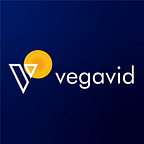The Evolution of DAOs: Decentralized Autonomous Organizations in Action
The concept of Decentralized Autonomous Organizations (DAOs) has emerged as a revolutionary force in the blockchain space. DAOs represent a new paradigm for collaboration and decision-making, fostering a community-driven approach to various endeavors. This blog delves into the evolution of DAOs, explores their functionalities, and showcases how they’re shaping the future across diverse sectors.
From Governance to Collaboration: The DAO Journey
The initial conception of DAOs revolved around decentralized governance. Blockchain technology empowered communities to manage projects and make collective decisions through token-based voting mechanisms. Early DAOs, like The DAO (launched in 2016), aimed to function as decentralized venture capital funds.
However, the evolution of DAOs has transcended their initial focus on governance. Today, DAOs encompass a broader spectrum of activities, including:
- Community Management: DAOs can facilitate the creation and management of online communities with shared interests, fostering collaboration and collective action.
- Content Creation: DAO structures can support the creation of decentralized media platforms and incentivize content creators through tokenized rewards.
- Investment & Fundraising: DAOs allow for the formation of decentralized investment clubs or philanthropic initiatives, pooling resources and making investment decisions collectively.
- Social Experiments: The flexible nature of DAOs makes them ideal for social experiments in areas like decentralized science or collaborative art projects.
How DAOs Function: A Glimpse Inside
The core functionalities of DAOs revolve around three key aspects:
- Smart Contracts: These self-executing programs on the blockchain govern the DAO’s operations. Smart contracts define rules for membership, voting mechanisms, and treasury management.
- Governance Tokens: These tokens represent voting rights within the DAO. Holding tokens allows members to participate in proposals and influence the DAO’s direction.
- Treasury: DAOs often maintain a community treasury funded by membership fees, token sales, or project revenue. Proposals determine how these funds are allocated.
Real-World Examples of DAOs in Action
- ConstitutionDAO: This DAO, formed in 2020, aimed to raise funds for a rare copy of the US Constitution. Though unsuccessful in acquiring the document, it showcased the potential of DAOs for collective action.
- Uniswap DAO: The governing body behind the Uniswap decentralized exchange, this DAO allows token holders to vote on proposals for protocol upgrades and fee structures.
- PleasrDAO: This DAO focuses on collecting culturally significant NFTs (Non-Fungible Tokens) and exemplifies the use of DAOs for collaborative art acquisition.
- Gitcoin Grants: This DAO utilizes a quadratic funding mechanism to distribute grants to open-source software projects based on community contributions.
The Future of DAOs: A Collaborative Landscape
DAOs hold tremendous potential to reshape various industries in the future. Here are some anticipated advancements:
- Mainstream Adoption: As the concept of DAOs becomes more familiar, we can expect wider adoption across various sectors beyond the current crypto-focused landscape.
- DAO-as-a-Service (DaaS): Platforms could emerge that simplify DAO creation and management, making them more accessible to a broader audience.
- Regulation & Legal Frameworks: As DAOs evolve, regulatory frameworks will need to adapt to address issues like legal liability and token classification.
The Potential and Challenges of DAOs
While DAOs offer exciting possibilities, some challenges need consideration:
- Security Risks: Smart contract vulnerabilities can pose security risks, potentially leading to hacks or misappropriation of DAO funds.
- Scalability: DAO decision-making can become complex with large memberships, creating challenges in achieving consensus and efficient governance.
- Inclusivity: Ensuring a diverse and representative DAO membership to avoid echo chambers is crucial for effective decision-making.
Conclusion
DAOs represent a transformative force in shaping a more collaborative and community-driven future. From innovative governance models to fostering collective ownership and decision-making, DAOs are making their mark across various sectors. As the DAO landscape continues to evolve, it’s crucial to address potential challenges and develop robust legal frameworks to ensure their sustainable and responsible growth.
